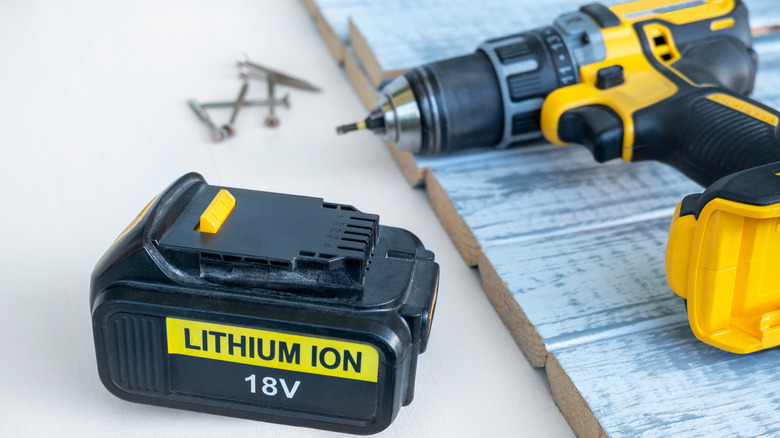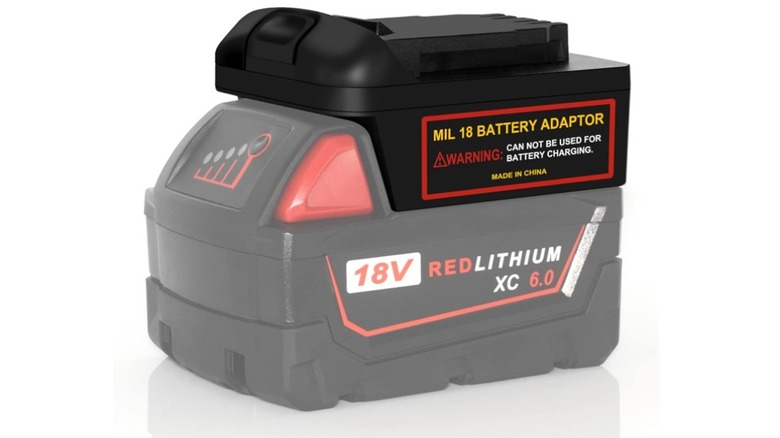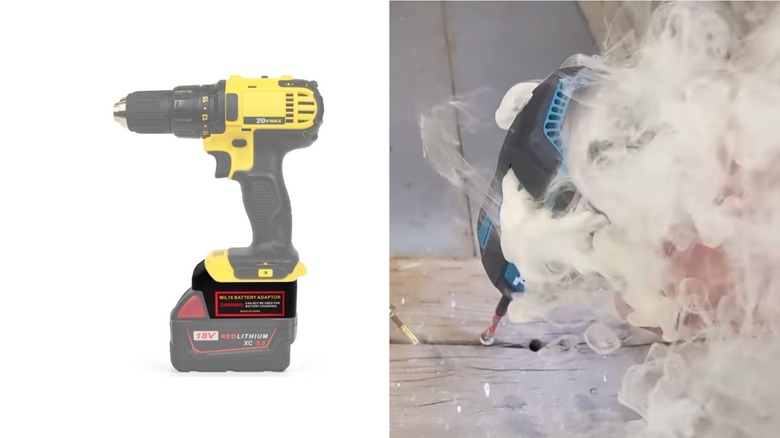What Are Milwaukee To DeWalt Battery Adapters, And How Do They Work?
We may receive a commission on purchases made from links.
Cordless power tools have been around for several decades and offer convenience by ditching the requirement for a lengthy extension cord. Believe it or not, battery-powered tools were invented by Black and Decker back in 1961. Advances in battery technology have made these devices increasingly more powerful, with modern units reaching up to 20 volts of power, compared to less than 5 volts of power earlier on. If you're looking to add to your workshop or garage, you'll need to know which power tool brand is best for you and how to decide.
For all the enhanced functionality cordless power tools provide weekend warriors and professionals alike, compatibility is one glaring issue. Several different tool manufacturers understandably want customers to remain loyal to their brand. Each company makes its products a bit differently, using unique shapes, contact points, and power delivery technologies between their tools and batteries in particular. As a result, you often have to purchase battery packs directly from the toolmaker. However, many people accumulate tools over time, only buying what they need for an immediate project instead of stocking up all at once. With hardware store deals and so many manufacturers to choose from, many people buy tools from more than one brand. So, naturally, anyone would wonder whether there's a way to use batteries from one brand, such as Milwaukee, with tools from another, like DeWalt.
Adapters and how they operate
Typically, the term adapter describes a product designed to join two components that don't naturally align, and battery adapters are no exception. Battery adapters are helpful for situations where you start a project only to discover your cordless DeWalt drill has a depleted DeWalt battery. Rather than halt your progress entirely while you wait hours to recharge, an adapter allows you to use a fully charged Milwaukee battery instead, for example. In theory, as long as you have at least one brand of battery charged and the required adapters, you can mix and match across different manufacturers.
In order for the adapter to work, however, it must conform to specific plastic shapes that align the contact points to accommodate one type of battery and another brand of tool. These battery packs slide and click into place, so the fit must be exact for consistent power transfer. These adapters typically range in price from $12 to $25 and are often made by third-party manufacturers. Tool-makers do not typically endorse or support adapters unless they're specifically made by the company.
Reasons to and reasons not to use adapters
At first glance, a battery adapter can help simplify your tool needs and save money. For example, say you have some older tools that still work well and need a new battery, but the product line has been discontinued. You can either purchase an adapter for $20 or less, or potentially spend hundreds of dollars buying a whole new set of tools (Make sure you're familiar with every major cordless drill brand ranked worst to best before you buy anything though.)
While the convenience of swapping batteries between different tool brands seems compelling, there are potentially significant downsides. Most important is that adapters don't always work correctly. The tools are often designed to receive power from their associated batteries in a specific way and an adapter may not transfer power as expected. Another risk is that many people tend to use adapters to combine unmatching voltages, which can lead to equipment failures and other hazards. For example, if you connect a higher voltage battery than expected, the tool could overheat, causing damage. Ultimately, if you're hoping to save money, you may be surprised by the hidden savings in sticking with one power tool brand rather than trying to mix and match.


